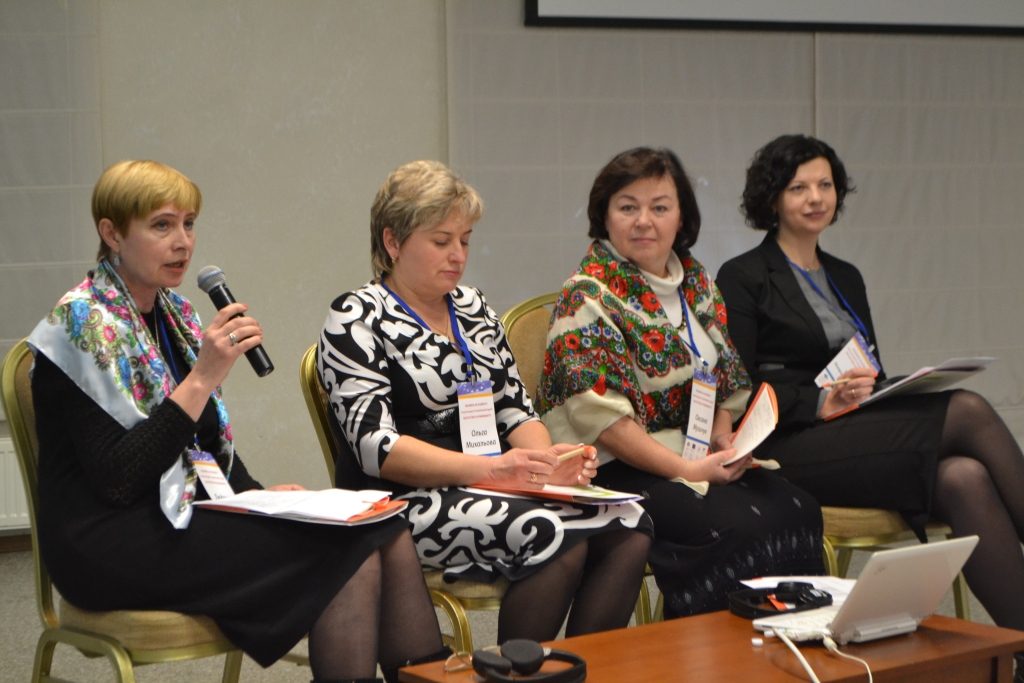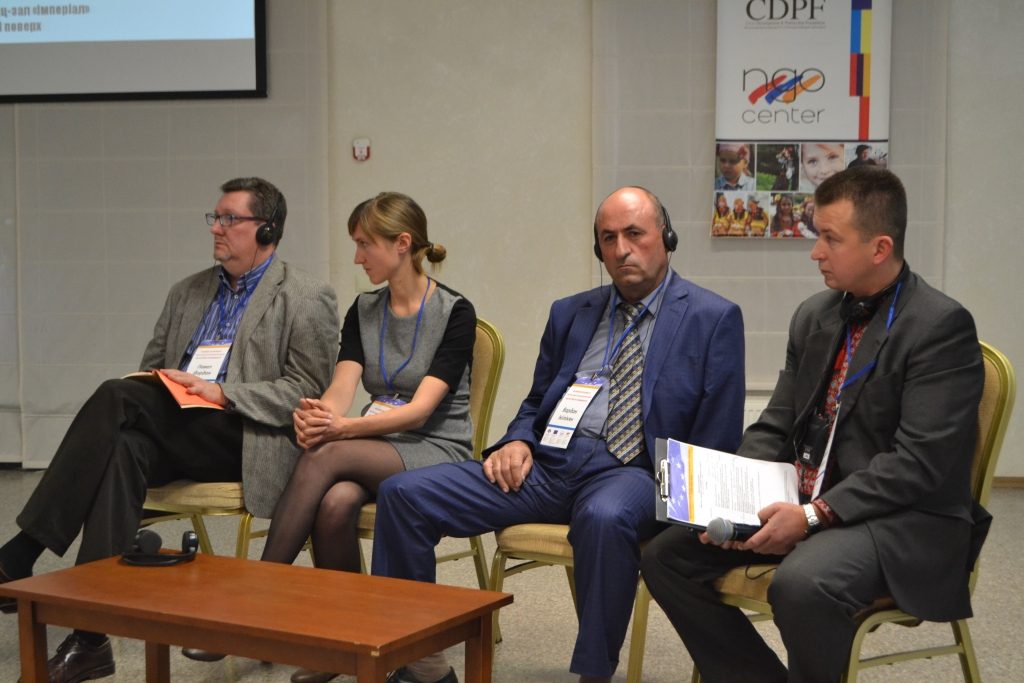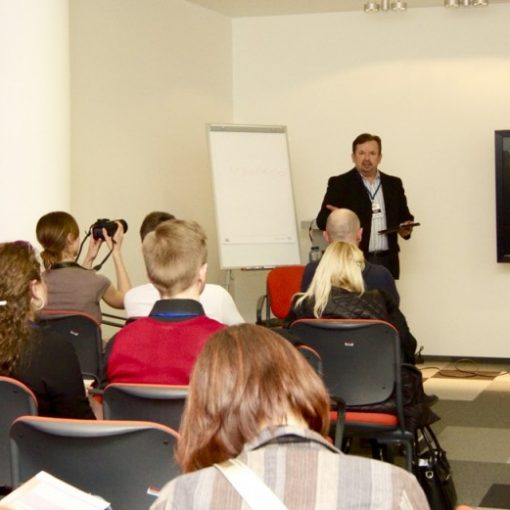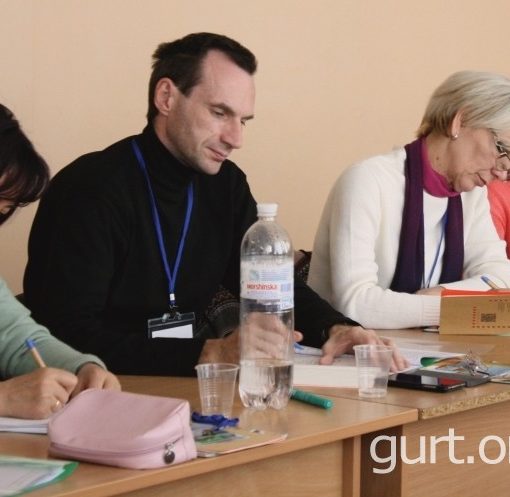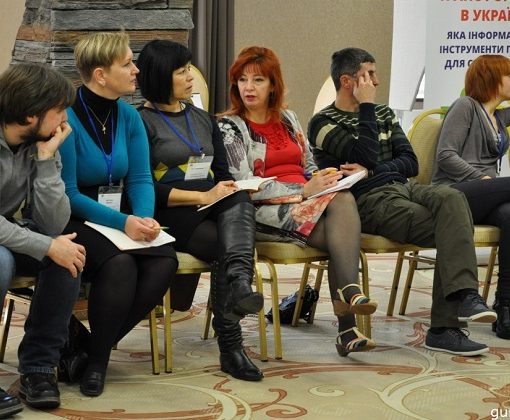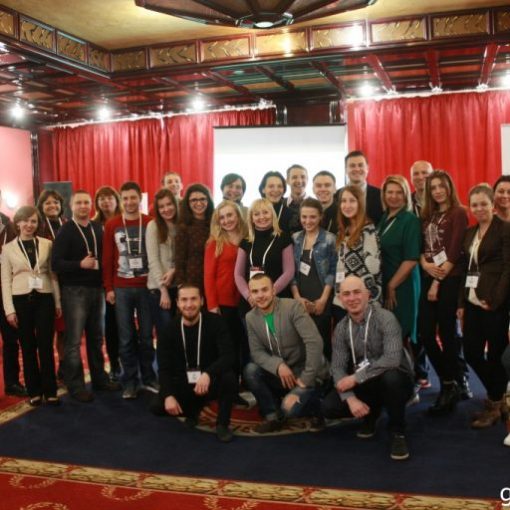International conference “Richness through diversity: how to turn a challenge into an asset?” on October 30-31, 2014 has summed up the results of the 3-year project “Equal opportunities for national minorities and disadvantaged groups in realizing cultural rights: richness through diversity” financed by European Union under Eastern Partnership Culture Programme. The project has been implemented by GURT Resource Centre in 20 rural communities of Ukraine and Armenia.

The conference took place on October 30-31, 2014 in Irpin (Kyivska oblast). The conference was opened by Bohdan Maslych, Executive Director at GURT Resource Centre, Oksana Muzychuk, Project and Monitoring Manager at the RMCBU, Olesya Ostrovska-Lyuta, First Deputy Minister of Culture of Ukraine and Lyudmyla Tkachuk, Head of the Department of Religions and Nations (Culture, Nations and Religions Office of Kyiv Regional State Administration).
Olesya Ostrovska-Lyuta read the congratulatory address from Yevgen Nyshchuk, Minister of Culture of Ukraine: “I am quite certain that the effective work at the conference will contribute to mutual understanding and consolidation of our society, and help build international tolerance at every level of national and cultural life. The Ministry of Culture of Ukraine and I personally would like to extend sincere gratitude to everyone who took part and applied energies to make the conference happen. This event is a bright example of international dialogue. I wish the honourable audience peace, happiness and prosperity – for everyone and for Ukraine.”

Lyudmyla Tkachuk emphasized that one of the advantages of the project was the opportunity to adopt the best practices of local communities’ development and national minorities’ integration from Armenia and Poland.
The next stage of the event was the
Olesya Ostrovska-Lyuta, First Deputy Minister of Culture of Ukraine: “It is highly important to stop thinking of culture as of the expense item exclusively and realize it contributes to the economics, social life and life of the community. Even though culture is an expenditure, it creates the world we live in.”
Oksana Muzychuk, Project and Monitoring Manager at the RMCBU: “Once I saw an abstract from Thomas Friedman’s research of an American country – I don’t recall how it was called, but the abstract was entitled “The Lexus and the Olive Tree”. In that abstract Friedman associated economic prosperity with the Lexus – a luxurious, top-notch car. And the olive tree – inconspicuous, undemanding – grows somewhere in the backyard. It is there all the time – generations pass, but it’s still there. So, Thomas Friedman has studied the issue and states that any nation strives for the Lexus, for economic prosperity and does
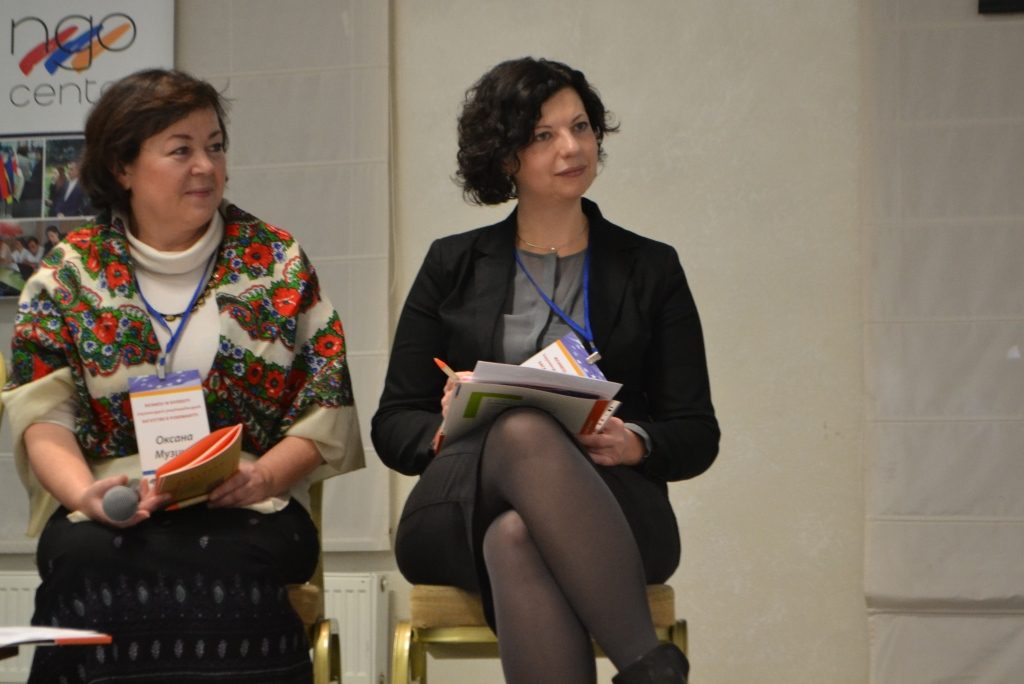
Olga Mykhalyova: “The most important result is that we managed to unite the community members, gave them the opportunity to become confident, and – it may sound pompous – we turned their world upside down.
We inspired the community to implement the next projects, to plan the future, to become confident. We made them realize we can make a change if we want to make life more meaningful, to make it better – for our own sake”.
Maryana Zaviyska, Program Manager at GURT Resource Centre: “This opportunity for members usually excluded from the community’s life links them in a way to the economic life. It is about the development of personal skills, social skills (that could be applied to communication within the community), networking, contacts, and higher competitiveness on the labor market.
Now, at the end of the project, we prepare the success stories leaflet and ask the communities to describe the results of the project. In the success stories we have already received no one writes about local club’s renewal or about the new equipment purchased. On the contrary, they say they understood what the volunteering was, managed to overcome apathy and activate the elderly, the new mothers, the representatives of national minorities for team working.”
Then the event went on in the open space format.
The participants discussed the issues that were important for them and managed to identify the steps to take and the date of the next meeting. They also found partners and people willing to take part in the projects. You can find the publication (in Russian) based on the results of the open space below.
Paweł Jordan, President of BORIS Association (Poland): “It was a very interesting long-term project. The fact it was long-term is important – because sometimes if we want to see some results, especially in
Oleg Dulgaryan, Executive Director at Centre for Community Mobilization and Support (Armenia): “The brightest impression from the project is the moment we understood that other people would carry on the project we started. We realized we set a foundation and then the initiative would go on by itself.”

